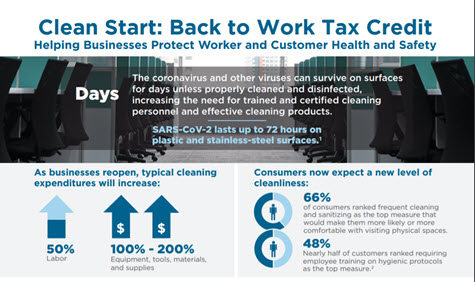
Federal Reserve Chairman Jerome Powell and Treasury Secretary Steven Mnuchin offered their views on potential COVID-19 relief for commercial real estate during a June 30 House Financial Services Committee that focused on the federal government’s response to the pandemic. (HFS Committee hearing, June 30)
- Barr added that without federal intervention, the commercial real estate sector could experience a wave of foreclosures and defaults. He asked if the Federal Reserve has the authority to establish a credit lending facility to service commercial real estate.
- Powell responded, “I’ve been very focused on this. You’ve got people who can’t currently service debt, you’ve got these inflexible arrangements. So there’s a serious problem here that needs to get fixed and we’re racking our brains to see how – how it could be something we could do by lending, but that’s really all what we can do … is create more debt.”
- Mnuchin acknowledged the June 22 letter and responded that CRE sectors such as hotels may be considered for direct aid in the next round of coronavirus relief.
- Mnuchin stated, “This is a large challenge. So, we have been working with the Fed, we have not yet figured out a way to set up a facility. So, it’s not out of a lack of interest or a lack of it desire. There are structural problems. And let me just add, in many of these cases, these companies don’t need more debt. They need support. So, one of the things we will want to look at in the next CARES Act, as I said, is additional support for these hardest hit industries. As the (Fed) Chair has said, there’s a difference between lending and spending.”
- Rep. Bill Posey (R-FL) warned that hoteliers’ inability to make payments threatens the servicing of CMBS. Munchin responded that the CMBS industry has restrictive covenants limiting their ability to utilize relief programs. “And that’s why one of the things I do think we need to look at in the next CARES Act is additional funding for these industries that are the hardest hit so they can continue to rehire people so that, as occupancy increases, that they have employees that they can maintain. We need to look at additional support for these hard hit industries,” Munchin said.
Mnuchin also discussed the Administration’s work with Congress to address the economic fallout from the outbreak with The Roundtable’s President and CEO Jeffrey DeBoer during the organization’s Virtual Annual Meeting last month. Secretary Mnuchin emphasized how recent improvements to the Paycheck Protection Program (PPP) has helped small business borrowers deal with the economic impact of the global pandemic. He added that the Administration is also considering business liability protections and pandemic risk insurance. (Watch the discussion on The Roundtable’s Youtube channel here.)
Extending and Repurposing PPP
The House and Senate this week passed an extension to the Paycheck Protection Program (PPP), allowing small businesses to apply for these loans until August 8. President Trump is expected to sign the extension into law. (CQ, July 1)
- Mnuchin’s testimony on June 30 came on the same the day that the (PPP) was set to expire, with approximately $130 billion of the original $670 billion allocated unused. The PPP was created by Congress in March to enable small businesses to apply for forgivable loans during the pandemic.
- Mnuchin stated that as of June 27, the PPP had approved 4.8 million small businesses loans totaling $520 billion, supporting an estimated 50 million jobs. (ThinkAdvisor, June 30)
Mnuchin also told the House Financial Services Committee (HFSC) that he supports congressional legislation to repurpose the remaining PPP funds. “There appears to be bipartisan support in the Senate to repurpose the (funds) for PPP, extending it to businesses that are most hard hit, that had a requirement that their revenues have dropped significantly, things like restaurants and hotels and others where it is critical they get people back to work.”
House Passes Eviction Moratorium Extension
HFSC Chairwoman Maxine Waters (D-CA) led the effort for House passage this week of the Emergency Housing Protections and Relief Act of 2020 (H.R. 7301), which supplements housing assistance provisions passed in May as part of the HEROES Act. (Rep. Waters House floor statement, June 30 and Roundtable Weekly, May 15.)
- The National Multifamily Housing Council (NMHC) and National Apartment Association (NAA) sent a June 29 letter to Congressional leadership expressing concerns about the bill’s expansion of the federal eviction moratorium that would undermine the benefits of other provisions within the legislation.
- The bill also would also provide multifamily building owners who are economically impacted by the pandemic the ability to obtain forbearance on making mortgage payments for a maximum of 360 days, whether those loans are federally-regulated or from a non-federal lender.
- The NMHC letter offers strong support for several measures within H.R. 7301, including liquidity for multifamily mortgages and servicers, additional funding for Section 8 Housing Choice Vouchers and support for rural housing.
- However, the letter also notes that the bill substantially expands the federal eviction moratorium established in the CARES Act to virtually all single family and multifamily homes for 12 months. The moratorium extension is also untethered to any actual COVID-19 impact on a renter and disconnected from a renters’ qualification or acceptance of emergency rental assistance.
The letter states, “A protracted eviction moratorium does not provide a sustainable, long-term solution for American families facing financial hardship and we oppose the inclusion of this provision for the severe consequences it will have that ultimately blunt the impact of the positive components of the legislation.” (NMHC, June 29)
Next COVID-19 Relief Package
This week’s action on COVID-19 related policy comes as Democrats and Republicans consider an additional coronavirus relief package after they return from the congressional July 4 recess.
- The House in May passed its own $3 trillion pandemic recovery package, which includes billions in aid for state and local governments. Republicans have signaled they may be open to another COVID-19 bill, but on a measured basis. (Forbes, May 21 and Roundtable Weekly, May 22)
- Senate Majority Leader Mitch McConnell (R-KY) this week said the goal for finishing the next coronavirus package would be before Congress breaks for its lengthy August break.
- McConnell assessed that when policymakers return on July 20, it “dovetails nicely with the perfect time to take an assessment of the economy and the progress we’re making on the health care front and see if there is additional assistance needed for our health care providers,” McConnell said. (Politico, June 30)
Congress will have an 11-day window in late July to act on another stimulus package. President Trump yesterday said he supports another round of direct stimulus payments as part of a potential phase four coronavirus relief package. “We’re working on a ‘phase four.’ We’re working with Congress,” Trump said. “Work has started.” (Axios, July 1 and Fox Business, July 2)
# # #





